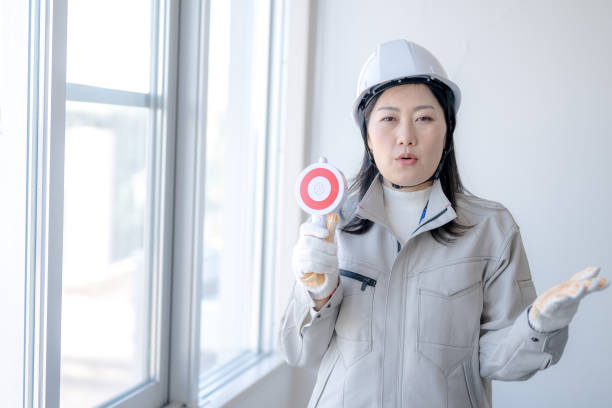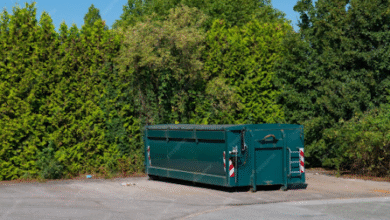The Role of a Janitorial Manager in Streamlining Cleaning Operations

In any organization, maintaining a clean, organized, and hygienic environment is essential for productivity and employee well-being. Behind every well-maintained facility is a skilled professional who ensures that cleaning operations run smoothly the janitorial manager. This individual plays a vital role in coordinating staff, managing supplies, implementing cleaning schedules, and ensuring that every space meets quality standards. With increasing demand for efficiency, businesses are turning to modern management solutions like TaskFlowManager to enhance workflow, reduce errors, and maintain a high level of cleanliness across their facilities.
Understanding the Responsibilities of a Janitorial Manager
A janitorial manager wears many hats, balancing administrative duties with hands-on supervision. Their main responsibility is to ensure that all cleaning tasks are completed efficiently and according to established standards. This involves organizing schedules, assigning tasks to staff, managing inventory, and maintaining communication with facility management. They are also responsible for inspecting cleaning outcomes, addressing issues promptly, and training employees on safe and effective cleaning practices. Technology has become a game-changer in this field. With TaskFlowManager, managers can automate daily task distribution, track performance, and monitor progress in real time, ensuring that no detail goes overlooked. This seamless coordination ensures a cleaner, safer, and more professional environment for everyone.
Leadership and Team Coordination
Strong leadership is at the core of successful cleaning management. A janitorial manager must lead their team with clarity, motivation, and fairness. Each team member must understand their duties and feel empowered to perform them efficiently. Effective communication is critical, as it helps build trust and ensures everyone is aligned with company goals. TaskFlowManager simplifies this process by providing digital tools that allow managers to assign roles, send updates, and receive instant feedback. This enhances team coordination and reduces confusion during busy shifts. A manager who invests in leadership and communication builds a stronger team capable of handling even the most demanding cleaning tasks.
The Importance of Technology in Modern Cleaning Management
The cleaning industry has evolved significantly with the rise of digital management platforms. Gone are the days of paper-based checklists and manual scheduling. Today, a janitorial manager can manage operations effortlessly through software designed to streamline workflow. TaskFlowManager stands out as a comprehensive solution for facility management, offering tools that automate repetitive tasks, generate detailed reports, and help track resource usage. This reduces administrative workload and allows managers to focus on supervision and quality improvement. With real-time updates, they can quickly identify and resolve issues, ensuring that every cleaning project meets standards on time.
Quality Assurance and Compliance
Cleanliness is not just about appearance; it’s about maintaining health and safety standards. A janitorial manager must ensure that all operations comply with hygiene regulations, safety guidelines, and environmental standards. Regular inspections and audits help maintain these standards, but manual processes can be time-consuming. Using TaskFlowManager makes quality control more efficient. Managers can log inspection results, track performance metrics, and schedule maintenance checks automatically. This ensures consistency and accountability throughout the cleaning process. Compliance with health and safety regulations also protects both employees and clients, creating a trustworthy and professional image for the business.
Training and Development for Cleaning Staff
Ongoing training is vital in the cleaning industry, especially as new cleaning techniques, products, and equipment are introduced. A janitorial manager must identify skill gaps, organize training sessions, and ensure that every team member is knowledgeable about proper cleaning procedures and safety practices. This not only improves efficiency but also boosts employee confidence and retention. With TaskFlowManager, training programs can be scheduled, tracked, and recorded digitally, allowing managers to monitor employee growth over time. Investing in training also reduces workplace accidents and enhances service quality, creating a culture of continuous improvement.
Sustainability and Eco-Friendly Cleaning Practices
Modern cleaning management goes beyond traditional methods; it includes a commitment to sustainability. A responsible janitorial manager promotes eco-friendly cleaning by using biodegradable products, reducing water waste, and optimizing resource use. TaskFlowManager assists in achieving these goals by helping managers monitor inventory levels and identify areas where waste reduction is possible. Sustainable cleaning practices not only protect the environment but also contribute to healthier indoor air quality, benefiting both employees and building occupants. Many companies now view sustainability as a business priority, making it an essential component of professional cleaning management.
Problem Solving and Efficiency in Operations
Every cleaning operation faces unexpected challenges, such as staff shortages, last-minute schedule changes, or equipment breakdowns. A skilled janitorial manager must think quickly and adapt to new situations without disrupting workflow. Efficient problem-solving ensures minimal downtime and consistent service quality. Tools like TaskFlowManager provide insights into task completion rates and help identify recurring issues, allowing managers to make data-driven decisions. With access to accurate information, managers can optimize schedules, improve staff allocation, and maintain smooth daily operations even under pressure.
Communication Between Management and Staff
Effective communication bridges the gap between cleaning teams and upper management. A janitorial manager acts as the link, ensuring that both sides understand expectations and goals. Transparent communication reduces misunderstandings, increases accountability, and encourages feedback from staff. TaskFlowManager supports this by centralizing communication within one platform, allowing instant updates and notifications. When everyone is on the same page, operations become more organized, and morale improves. A well-connected team delivers better results and maintains consistency in service delivery.
The Future of Janitorial Management
As technology continues to evolve, so does the role of a janitorial manager. Artificial intelligence, automation, and data analytics are shaping the next generation of cleaning management. These advancements help managers forecast needs, track performance, and optimize resources. TaskFlowManager is already a step ahead in this transformation by offering advanced reporting tools and automation features that reduce manual effort. In the future, managers will rely even more on data-driven insights to maintain efficiency and sustainability. The combination of human expertise and digital innovation will define the future of professional cleaning management.
FAQs
What is the main role of a janitorial manager?
A janitorial manager oversees all cleaning operations, manages staff, organizes schedules, and ensures that the facility meets cleanliness and safety standards.
How does TaskFlowManager help in cleaning management?
TaskFlowManager automates scheduling, tracks progress, and simplifies communication, helping managers save time and maintain efficiency in daily operations.
Why is training important for cleaning staff?
Proper training improves cleaning quality, safety awareness, and employee confidence, leading to better overall performance and reduced errors.
Can digital tools really improve janitorial management?
Yes, digital tools eliminate paperwork, enhance communication, and allow managers to monitor tasks in real-time, resulting in better organization and productivity.
How does sustainability fit into cleaning operations?
By adopting eco-friendly products, reducing waste, and managing resources efficiently, cleaning operations become more sustainable and environmentally responsible.
Conclusion
The role of a janitorial manager goes beyond supervision; it’s about leadership, innovation, and efficiency. They are responsible for maintaining clean, safe, and productive environments that reflect an organization’s commitment to excellence. With platforms like TaskFlowManager, managers can automate tasks, improve communication, and ensure quality results while embracing sustainability. As the cleaning industry continues to evolve, the combination of skilled management and digital innovation will drive the future of professional maintenance. Investing in the right tools and leadership will always be the key to achieving operational success and lasting cleanliness.
Author Bio:
Written by Ayesha Khan, a facility operations expert at TaskFlowManager. Ayesha specializes in janitorial management and digital workflow solutions. Visit TaskFlowManager to discover how technology can transform your cleaning operations and boost efficiency effortlessly.



